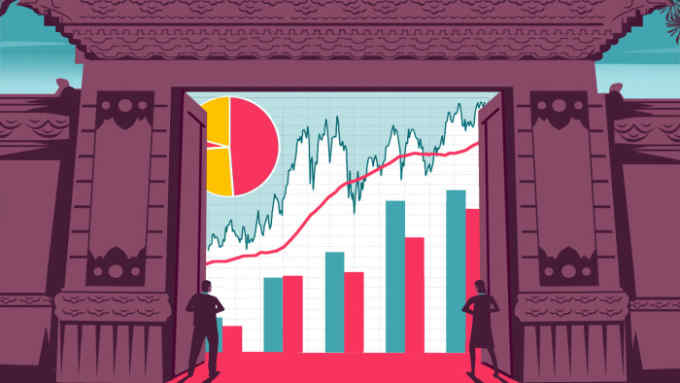Emerging markets: change in the air for responsible investment

Roula Khalaf, Editor of the FT, selects her favourite stories in this weekly newsletter.
About this time of year, city dwellers across China stock up on face masks and air purifiers as temperatures drop and more coal is burnt.
The thick smog that gathers each winter across Chinese cities places environmental concerns front and centre for their inhabitants.
They may take heart, however, from the fact that boardrooms across the region are taking notice of increasing pressure to tackle this problem — along with adjacent investor concerns around social and governance issues — as the ESG movement sweeps into emerging markets.
Policymakers in China, for instance, have begun to voice concern over the high levels of pollution resulting from rapid economic development.
Chinese President Xi Jinping championed the Paris climate change agreement signed in 2016 and, after the US pulled out of the accord last year, Beijing signalled a willingness to work more closely with Europe on environmental issues.
“When China [indicates support] they don’t do it in small doses,” says Marisa Drew, chief executive of the impact advisory and finance department at Credit Suisse. “I see it amplifying over time.”
“The trajectory is positive,” agrees Shami Nissan, head of responsible investment at Actis, an emerging markets investment company, but adds that “the pace will differ in different regions”.
Though there are profound differences between emerging economies, they share many challenges in improving their ESG scorecards. Corporate governance standards are often lower, gender diversity tends to be poorer and several countries — including China, India and Thailand — have serious pollution problems.
Emerging market support for the UN-backed Principles for Responsible Investment — whose members pledge to incorporate ESG analysis into their investment decision-making — is tiny. Of a global total of 2,188 signatories, China has 18, while South Korea and India both have just six. Brazil has 48 members, Mexico seven and Argentina one.
A recent global survey compiled by the Asset Owners Disclosure Project examined how the biggest public pension funds are addressing climate-related risk. The emerging market top scorer was the National Pension Service in South Korea — placing 51st out of 100. The National Council for Social Security Fund was the only Chinese group on the AODP list, in joint 70th place.
There is a desire in the region to attract foreign investment and open capital markets and a recognition that this requires sharpening corporate governance standards.
Japan’s Government Pension Investment Fund is regarded as a major influence across the region. A shift in investment strategy at the GPIF, the world’s largest pension fund with $1.47tn under management, is widely credited with stimulating interest in responsible investing in the region. Last year, it announced it would allocate about 3 per cent of its equity portfolio, or ¥1tn ($8.9bn), to three ESG indices.
Investing in emerging markets is the best way international investors can instigate change in the sector, argues Charles Robertson, global chief economist of Renaissance Capital, an emerging and frontier markets investment bank.
“We understand that it might be easier to justify an investment in Denmark over Ivory Coast . . . but if investments do not flow [to emerging and frontier markets], this ensures low ESG scores stay low for longer,” he stated in a report this month. “Inaction creates a negative consequence while proactive investments can play a small role in driving a big improvement.”
This sentiment is shared among other managers. Alexandra Morris, investment director at Skagen Funds, a Norwegian investment manager that invests in several South Korean companies, says the group is “in very close dialogue” with businesses on issues such as unionisation and employee working hours — hot-button issues that centre on the country’s demanding work culture. “Very positive things are happening,” she says. Yet often development in other areas of ESG still lags behind.
Ms Nissan says she has been encouraged by progress at many African companies that realise they need to get their houses in order if they are to attract financial backing from international investors.
Nations also tend to prioritise different aspects. China’s emphasis on reducing detriment to the environment contrasts with developed economies, where the “G” in ESG has tended to come first.
“It’s definitely ‘E’ first because of the pollution problems and energy security,” says David Li, lead analyst for China, Hong Kong, Singapore and Taiwan at Impax Asset Management, and co-manager of Asia strategies for the £11.9bn group specialising in sustainable investing.
Investors need to be mindful that an emphasis on only one aspect of ESG could be masking a lack of progress in other areas.

Comments